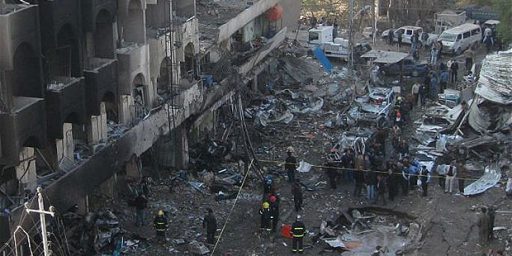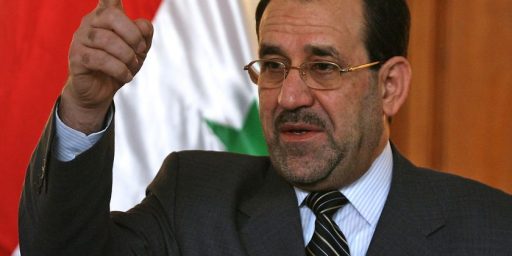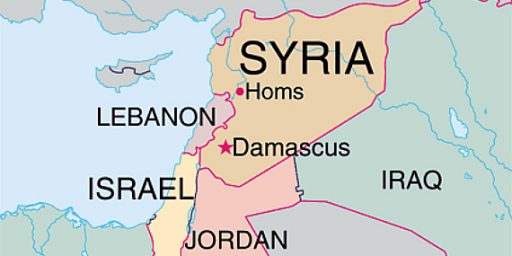THE REPUBLIC OF FEAR
Writing in Newsweek, Fareed Zakaria argues that Saddam’s capture will have more impact on the insurgency than most of us have predicted:
The guerrillas’ strategy was not to win militarily. They could not do that with their pinprick attacks. They sought to win politically by conveying the impression that the Coalition could not stabilize Iraq, disheartening people in Iraq and within America. That psychological warfare just suffered a catastrophic setback.
If intelligence is getting better all round, it should have consequences beyond nabbing Saddam. “There’s no question that the key problem we had was intelligence, so the fact that it is getting better should make a difference in the broader fight against the insurgents,” the official explained. “And we hope this capture will further accelerate the pattern of intelligence cooperation. But by itself this is not going to solve the security problem. We will have to keep doing all the things we have to do anyway. And by itself it will not solve the political problems of Iraq, either.”
If the Coalition’s military strategy has taken a turn for the better, its political strategy also appears to be adjusting in one important dimension. Tony Blair used the occasion of his statement after the capture of Saddam to reach out explicitly to Iraq’s Sunni community. The official confirmed that this is part of an attempt to “convince the Sunnis that they have an important place in the new Iraq.” It’s essential to future stability. “They used to be 20 percent of the country and had 100 percent of the power,” the official explained, “and now they are 20 percent of the country and believe that they will have zero percent of the power. We had to demonstrate to them that that is not true.”
The Sunni strategy will take three forms: improving security in the Sunni areas, creating money and jobs in those places, and including Sunnis in the political institutions of a new Iraq. “The problem,” the official explained to me, “is that there are very few political organizations to work through. Saddam destroyed all of them. So we will help form professional associations, political parties, anything that helps them organize and advocate–as we will with all Iraqis.” There have been some in the administration who have wanted to win first and worry about this political strategy later. That struck me as a mistaken approach because the political problem was feeding into the military one. It would appear that a more sophisticated strategy is now in place.
May it be so.





